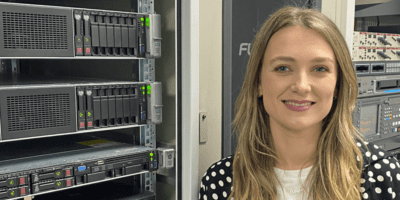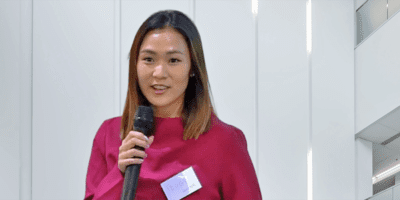Tracey Follows is a futurist, a consultant with global brands, specialising in the application of strategic foresight, who helps businesses spot trends, develop foresight, and fully prepare for what comes next. A regular keynote speaker around the world, Tracey has spoken at the United Nations in New York, delivered a TedX talk at the UK Foreign & Commonwealth Office, and spoken at the FT’s prestigious Global Boardroom. Tracey has appeared on BBC Business Matters, Radio 4’s FourThought and is a go-to futurist for national press and TV, and is now an author and podcast host, helping to communicate technology trends through her own podcast, The Future of You.
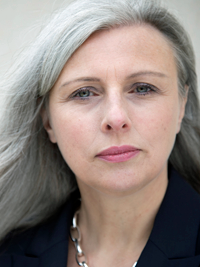
“It is my role to give you a glimpse into a future reality, to describe what is going to happen not what ought to happen. Once we are clear on the reality, then we can investigate alternative futures and pinpoint what our preferable future should be, and thereby chart a path towards it.”
Combining my passions for technical innovation and philosophy

I studied philosophy at the University of Manchester and then stayed for a year to do an MSc in Technology Change and Industrial Strategy, which was the start of my journey of combining my interest in both technical innovation and philosophy or social change. That combination was ever-present in my 22-year career in advertising and marketing.
I spent many years working on mobile technology accounts (O2 and T-Mobile) as well as client-side when I was head of consumer communications at BT working across everything from the launch of Total Broadband to the development of BT Vision.
In 2015 I resigned as chief strategy officer at J Walter Thompson to take this love of philosophy and technology and put them together in a career as a futurist, went to the University of Houston to train in futures studies and set up my own company, which became Futuremade.
The role of a futurist
I start every day by looking at trends and news items in fringe media and connecting with people who are trend-spotters on the ground in a variety of places. Several days of my week will be working on very specific projects for clients, which could span anything from the future of education, or housing to the creation a vision for a brand-new product launch for a brand, or preparing a presentation for a board or investors who might want to look 20 years to 50 years into the future of a particular sector.
I often appear on TV now to talk about new innovations and help people see where those are heading. I also write a column in Forbes.
Helping clients make decisions with the future in mind
I work with global brands on their new launches or their trends-based challenges, or on the changing needs of their consumer. I do a lot of ethnography, or in-depth research with innovators in-market to uncover the signals of real change.
I also conduct work for the public sector or non-profits. I carried out a big piece of research on a project looking at the future of work for women for the Women’s Business Council working with the Gender Equalities team in the Cabinet Office too. Unfortunately, it never got published as it was completed just before COVID, but I am now seeing lots of the predictions and policy recommendations I made especially around women’s health policies in the workplace starting to come into reality.
I have worked with Google, Diageo, Virgin, EY, KPMG, LEGO, BT, CogX, Wired and with agencies such as Cossette in Canada, helping them with pitches or carrying out futures projects for their teams or their existing clients.
I have also trained people in the tools, models and mindsets of strategic foresight, so clients can do more of that work themselves internally. The challenges are always the same: People want to know the future but can’t spare the time to invest in the discussions, or find when a project is over that they can’t implement the necessary changes that will lead them to an alternative future. There are ways to intervene and prevent this though, and that comes down to the skill and experience of the futurist.
Impact of COVID-19
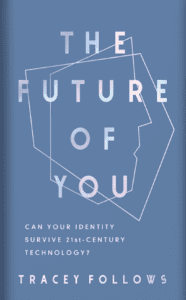
I completed it in Autumn 2020 and it was published in Spring 2021. By then, people were thinking about returning to a social and business life again and so I spent most of 2021 presenting and speaking about the future of identity in a digital world — the topic of the book — and as I had forecast so much about digital identity, digital currency, avatar identity in the metaverse, and even digital death, all those topics were highly relevant to people as they emerged from the pandemic and saw a changed, and digitised, world.
I spoke at the FT Global Boardroom, at the Nobel Vision conference in Moscow and all around the world (virtually) about this topic that no-one else seems to be looking at in depth yet, so I have become a bit of an expert on the future of identity.
Four trends that describe the next decade
There’s a trend towards technocracy, where we give up a lot of our own autonomous decision-making and put it in the hands of technical bureaucrats using technological platforms to achieve social conformity.
There’s a trend towards the feminisation of everything in society, making it more interconnected, inclusive and emotional. These two trends together are helping to shift people away from individuality towards collectivism which is one of the dangers for our self-sovereignty.
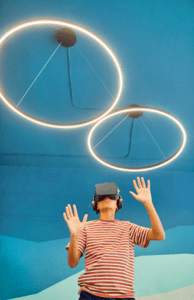
And finally, with globalism versus nationalism playing out at scale everywhere — something I predicted in my book.
The boundaries of the futurist’s role
I don’t think it is the futurists’s primary role to shape a more positive future. It is my role to give you a glimpse into a future reality, to describe what is going to happen not what ought to happen. Once we are clear on the reality, then we can investigate alternative futures and pinpoint what our preferable future should be, and thereby chart a path towards it. But we first need to put aside the activism and demonstrate a thorough and robust analysis.
Too much of what is happening in the world right now is based on fictional narratives that have become decoupled from reality, which explains why people are so shocked when events don’t work out the way they expected.
Coming up
I am back to doing in-person speaking events which is very exciting. I am soon up at The Edinburgh Science Festival talking about the Future of Identity and elsewhere in the summer.

I discuss with some amazing guests the future of identity from the perspective of virtual worlds and identities, transhumanism, memory and identity, the quest for identity through media performances, and even the technical details of a digital identity and data profiling. The subject is endlessly fascinating as it should be to anyone with an identity, (which is everyone!).
I would urge everyone to download the podcast (https://www.traceyfollows.com/episode-5/) and sign up to the newsletter (https://www.traceyfollows.com/subscribe/) as I have lots of interesting plans for this especially for businesses and brands, still to come. So, stand by!
Manchester image credit: By ChrisClarke88 – Own work, CC BY-SA 4.0, https://commons.wikimedia.org/w/index.php?curid=96980666


